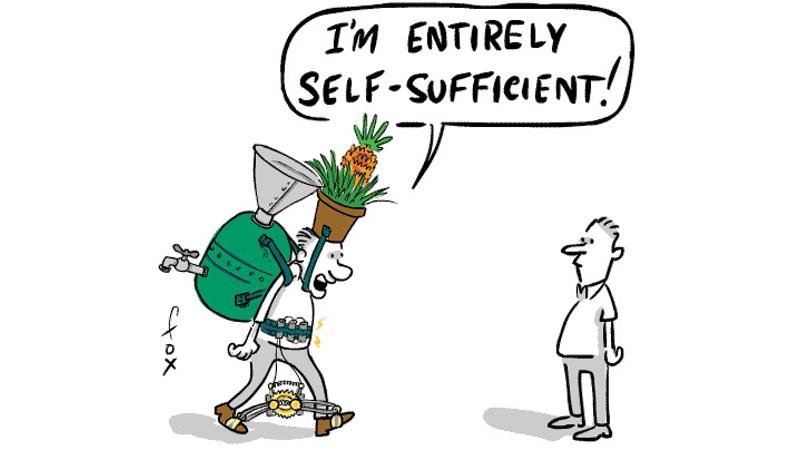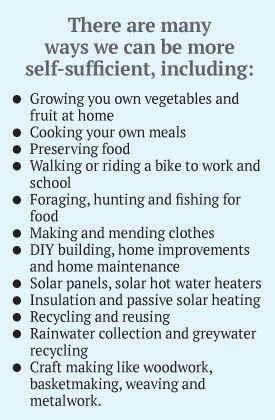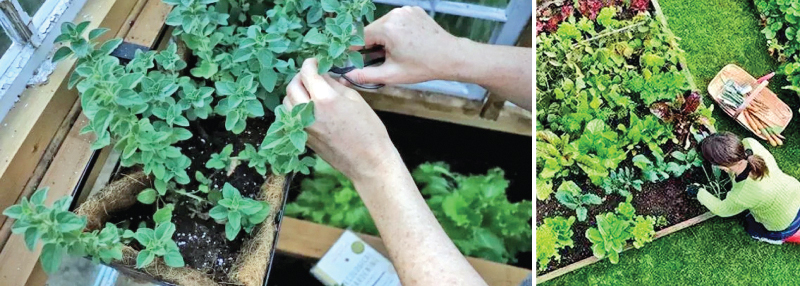
Self-sufficiency, also known as self-reliance, not only saves you money it protects you from the vicissitudes of life and also helps to protect the environment.
 Over the past 100 years changes in the economy and in society generally have led to less self-sufficiency. Increasing centralisation and globalisation of production means you can buy almost anything ready-made but it is not likely to be made locally.
Over the past 100 years changes in the economy and in society generally have led to less self-sufficiency. Increasing centralisation and globalisation of production means you can buy almost anything ready-made but it is not likely to be made locally.
Increasing specialisation, both parents working, and more work-life pressures generally means that people have lost the time and skills to be self-sufficient. People are money rich but time poor so they will pay for others to do what they would otherwise do.
We are increasingly dependent on other countries or distant areas of our own countries for even basic needs like food and clothes. With increasing fuel prices, the need to reduce greenhouse gas emissions and protect the environment, it is much better in the long term that people to be resilient and sustain themselves within their local communities.
Self-sufficiency is surprisingly satisfying as anyone who has grown vegetables or made their own clothes will tell you. It provides us with intrinsic rewards like a sense of achievement, self-esteem and self-confidence.
Self-sufficiency doesn’t mean isolation, indeed it is good to be interdependent, where people reciprocally support each other for mutual benefit. In modern societies, as incomes have increased, trust between people has decreased. Mutual self-suffiency increases levels of trust in society.
Sufficiency is having enough for a life of well-being. A big part of self-sufficiency is knowing how much is enough. If you can reduce your material needs you might be surprised how little you actually need.
Mindset
 Self-sufficiency is not just about growing your own food, having solar panels or ‘doing it yourself’, although that is certainly often part of it.
Self-sufficiency is not just about growing your own food, having solar panels or ‘doing it yourself’, although that is certainly often part of it.
It starts, however, with a self-sufficiency mindset. Self-sufficient people have the ability and the desire to live life on their own terms, to determine their own course, to make their own decisions, and not have their life choices made by others.
Self-sufficient people are not interested in trying to impress other people, and so it’s possible for them to be more authentic. Self-sufficient people realise that the only person they can control is themselves and they focus on being themselves.
Due to their inner order and wholeness, self-sufficient people are less likely to seek the compensations of material goods and status.
They’re less likely to need expensive possessions to feel good about themselves or to seek fame or power to make themselves look good.
Their inner sense of well-being means that they’re more resilient and confident in the face of the vicissitudes of life on a psychological level.
Also, lifestyles of self-sufficiency provide practical resilience and they are also much more environmentally sustainable. The self-sufficiency mindset is essentially what we call the thrive-at-least-cost mindset.

Source: Econation
